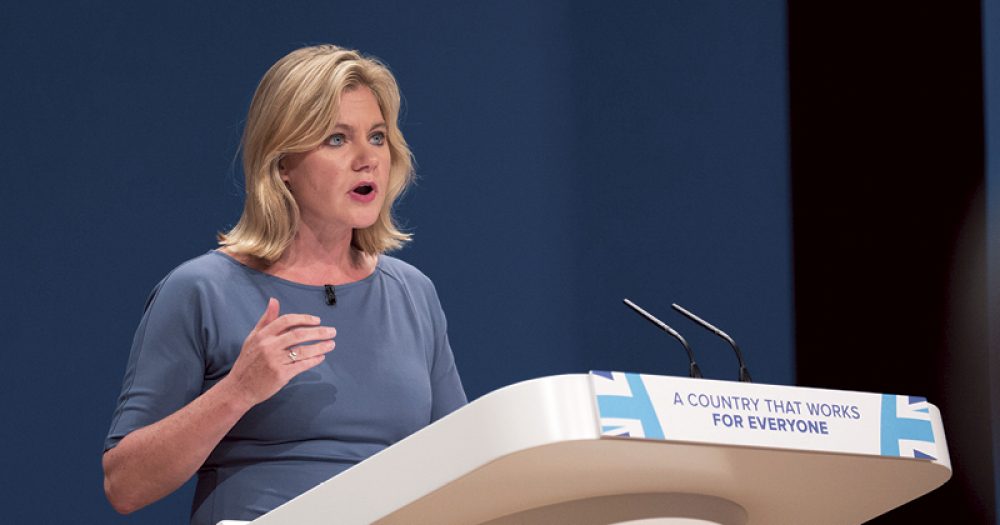The government’s plan to open new grammar schools is a key policy of Theresa May’s new “shared society”, the education secretary has said.
Justine Greening told the Andrew Marr show this morning that her department’s approach to expanding selection in England was an example of the government’s efforts to realise the prime minister’s new vision.
May has this weekend set out proposals for government intervention to stop what she called “burning injustices” happening across Britain, marking a departure from David Cameron’s idea of a “big society”.
Pressed by Marr to give a “concrete example of what is going to change” as part of the new shared society, Greening said: “We’ve already set out that we want more good school places wherever children are in the country.
“We have set out our proposals to look at introducing more grammar schools where local communities want that.”
Improving technical education and boosting apprenticeships are also a key element of the policy, Greening said.








Greening’s fooling herself. Dividing children into the bright and the dim at age 11 is not an example of a ‘shared society’.
It is the vacuousness of the statement “We’ve already set out that we want more good school places wherever children are in the country” before Greening gets to her solution which worries me. When has anyone wanted to create bad school places? Yet, the Government has not demonstrated that the creation of grammar schools will lead to more good school places overall.
Yes. a friend of mine says if the opposite statement would never be said, avoid the original rhetoric
So we are going to ignore the mounting evidence that shows grammer schools do not reduce inequality, generate social mobility or have a significant ‘change effect’ on life chances. Also ignores the level of inequality that us evident at 3 years old, and again at 5. This where the effort should go. Reduce the impact of social inequality evident by the end of KS2 and comprehensive, all ability secondary schools will fly, and avoid the significant downside of selection at 11 by tests that lack validity, reliability, and are highly susceptible to pressure cooker tutoring.
Ridiculous doublespeak. Grammar schools have been shown to have disproportionate numbers of more privileged children. How is expanding socially divisive education going to lead to a ‘shared society’ whatever that piffle means. It’s about as meaningful as David Cameron’s ‘big society’ and will be about as effective. Generally both seem to mean expecting well meaning volunteers to take the place of properly funded professional public services in supporting the less privileged.